Food
The best foods to break the fast
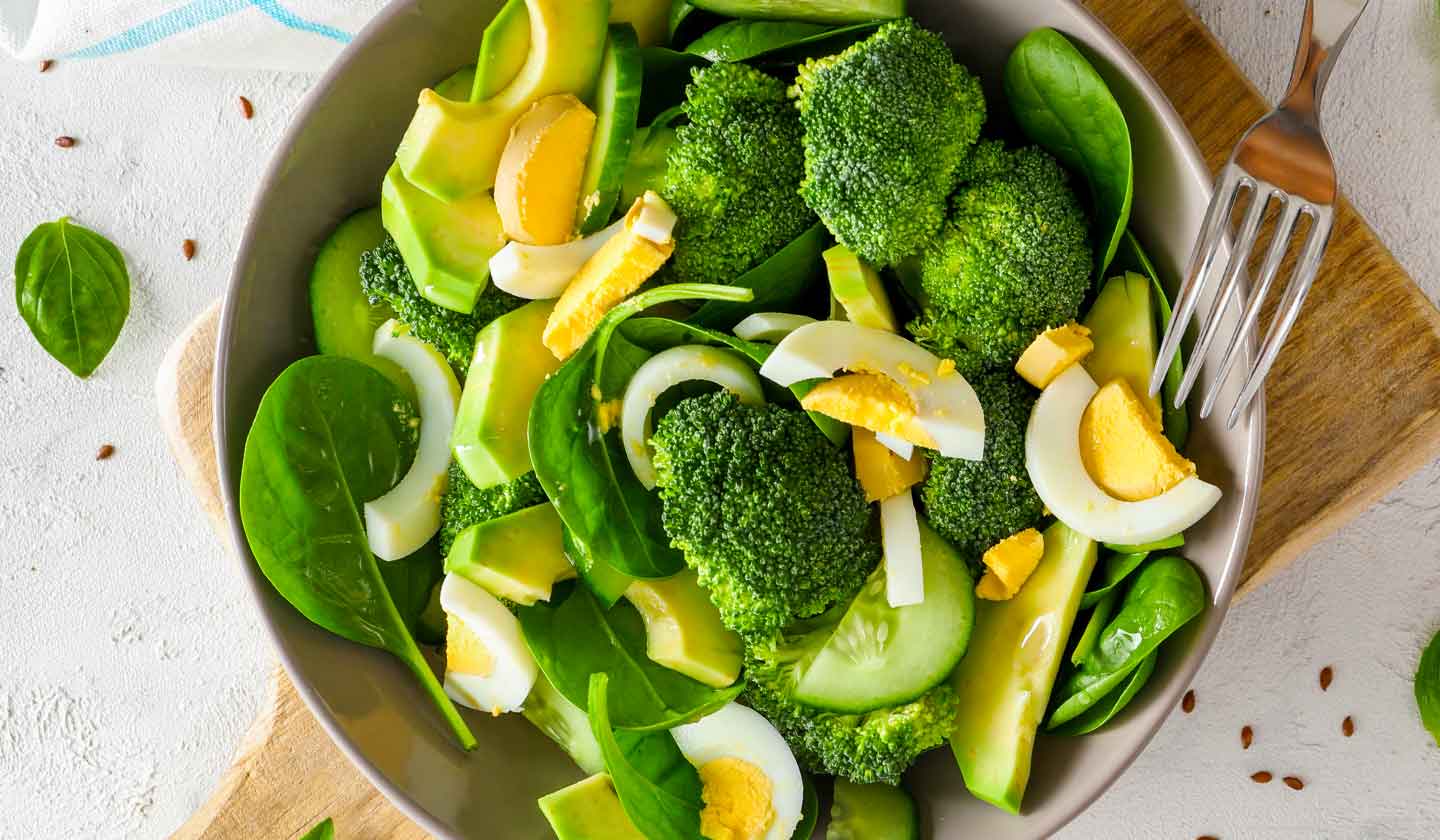
Many times, due to lack of knowledge, we end up not benefiting the most from the magic of fasting. This is due to poor choice of the foods we eat in the hours following the end of the prolonged fast.
One possible tool that can be used is high-intensity exercise, as it helps promote glucose uptake.
Breaking the fast with eggs, broccoli, and avocado is a very balanced option.
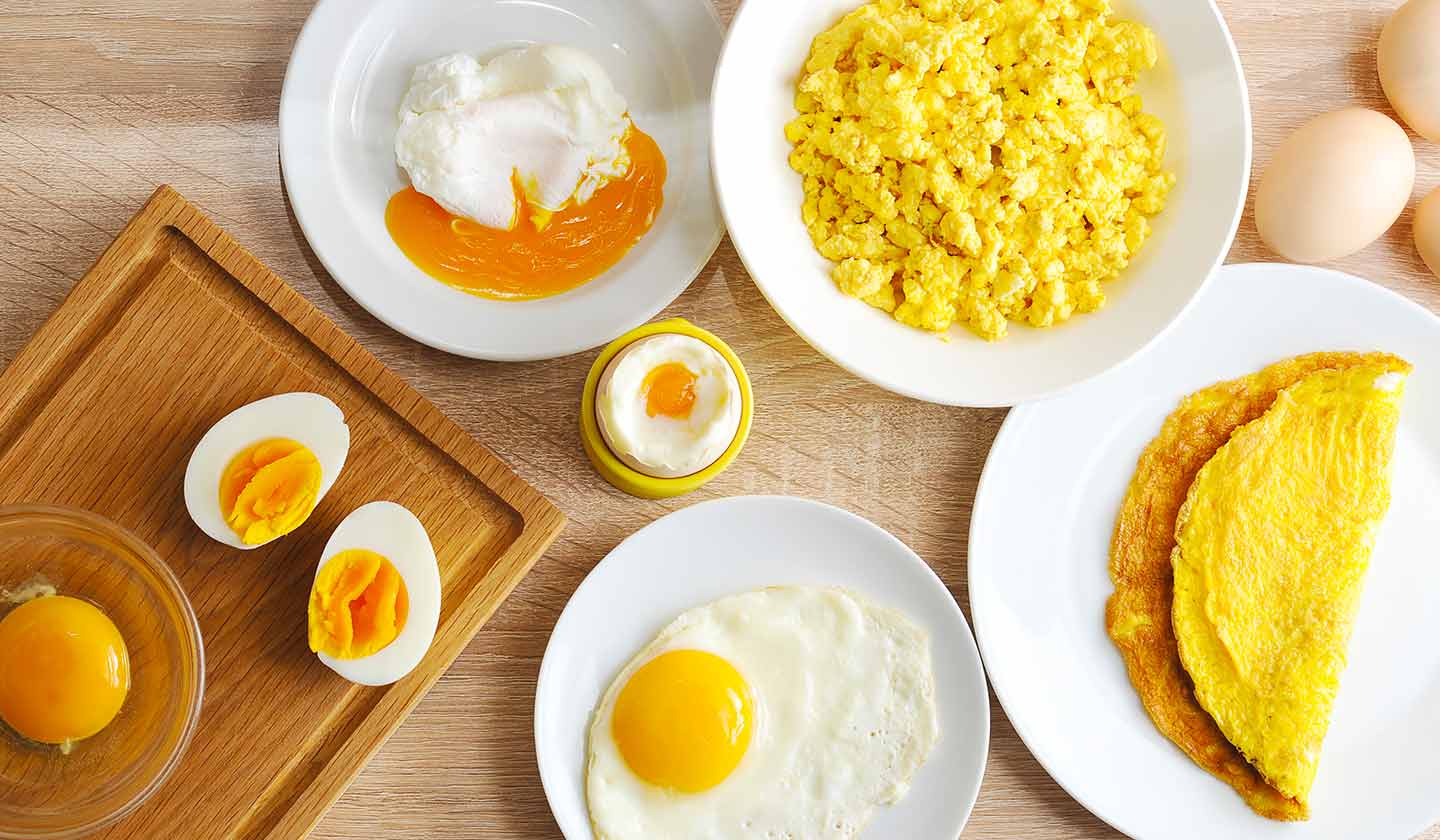
Eggs
Eggs are rich in vitamin A, which has an antioxidant effect and is essential for eyesight. Eggs are also rich in vitamin D, vitamin E, vitamin K, vitamin B6, calcium and zinc. They contain several trace nutrients that are important for health.
In fact, eggs are practically the perfect food. They contain a little bit of almost all the nutrients we need. A single large hard-boiled egg contains:
- Vitamin A: 6% of the RDA (Recommended Daily Allowance)
- Folate: 5% of RDA
- Vitamin B5: 7% of RDA
- Vitamin B12: 9% of RDA
- Vitamin B2: 15% of RDA
- Phosphorus: 9% of RDA
- Selenium: 22% of RDA
- 77 calories
- 6 grams of protein
- 5 grams of healthy fats
Omega-3 enriched and/or pasteurized eggs are even healthier.
Choline is a nutrient directly related to brain function, and because it is a precursor to acetylcholine, a chemical that directly intervenes in the transmission of nerve impulses, it accelerates the production and release of neurotransmitters, which leads to better memory and greater learning ability.
Whole eggs are an excellent source of choline. A single egg contains more than 100 mg of this very important nutrient.
In addition, eggs are rich in protein, the main building "bricks" of the human body. Proteins are used to form all kinds of tissues and molecules that serve both structural and functional purposes.
Getting enough protein in the diet is very important, and studies show that the amounts currently recommended may fall far short of the ideal. Eggs are an excellent source of protein. A single large egg contains 6 g of protein.
Eggs also contain all the essential amino acids in the right proportions, so that your body is well equipped to make full use of the protein in them.
Eating enough protein can help with weight loss, increase muscle mass, lower blood pressure, and optimize bone health.
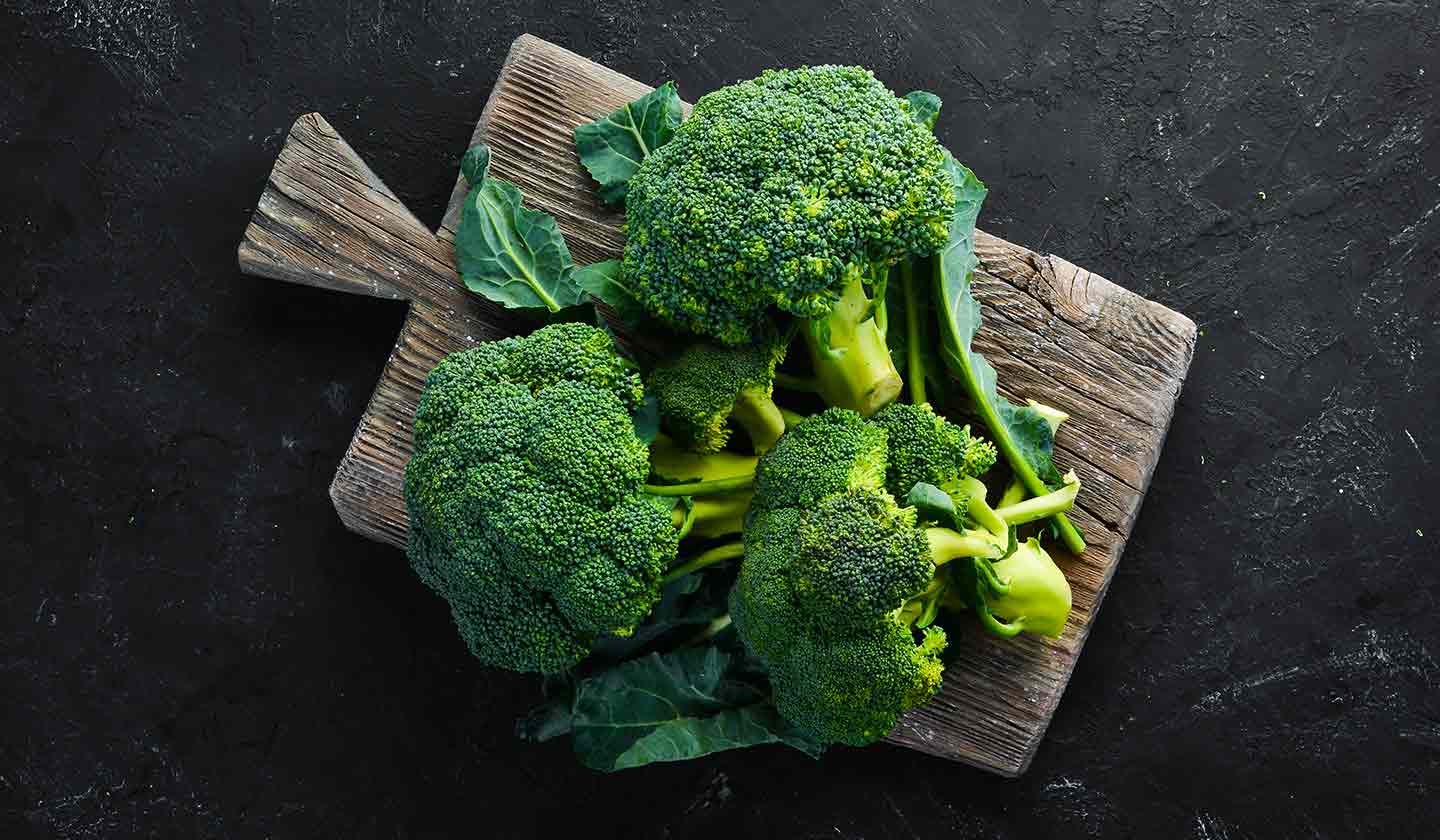
Broccoli
Broccoli is high in fiber and protein, and contains iron, potassium, calcium, selenium and magnesium, as well as vitamins A, C, E, K and a good variety of B vitamins, including folic acid. They also have more protein than most other vegetables.
This green vegetable can be enjoyed both raw and cooked, but recent research shows that gentle steaming provides the greatest health benefits. Raw broccoli contains almost 90% water, 7% carbohydrate, 3% protein, and almost no fat.
However, because of its high water content, 1 cup (91 grams) of broccoli provides only 3 grams of protein.
One cup (91g) of broccoli contains:
- 31 Calories
- 89%Water
- 2.5 grams of Protein
- 6 grams of Carbohydrates
- 1.5 grams of Sugar
- 2.4 grams of Fiber
- 0.4 grams of fat
In addition, broccoli contains a variety of vitamins and minerals. Among them:
Vitamin C
A powerful antioxidant, this vitamin is important for immune function and skin health. Half a cup of raw broccoli provides almost 70% of the RDA.
Vitamin K1
Broccoli contains high amounts of vitamin K1, which is important for blood clotting and promoting bone health.
Folic acid (vitamin B9)
Particularly important for pregnant women, folic acid is necessary for normal tissue growth and cell function.
Potassium
An essential mineral, potassium is beneficial for controlling blood pressure and preventing heart disease.
Iron
An essential mineral, iron has many important functions in our bodies, such as the transport of oxygen in red blood cells.
The carbohydrates in broccoli consist mainly of fiber and sugars. The sugars are fructose, glucose and sucrose, with small amounts of lactose and maltose. However, the total carbohydrate content is very low, with only 3.5 grams of digestible carbohydrates per cup.
So in addition to being low in carbohydrate, it provides a fair amount of fiber, which promotes intestinal health and can reduce the risk of various diseases.
Broccoli can stay fresh for up to two weeks if you store it dry and tightly wrapped in a plastic bag, unwashed. Be aware that the nutritional value of broccoli will decrease as its storage time increases, so it is best to use it as soon as possible.
Another alternative is frozen broccoli - you can use as much as you like, and freezing does a great job of preserving the nutrients.
Perfectly cooked broccoli is very appetizing, with a mild, pleasant flavor and a tender but firm texture. When overcooked, their nutrients are lost, and a good portion of their benefits as well.
Broccoli that is cooked just right retains its flavor and keeps its vitamins and nutrients much more efficiently than overcooked broccoli.
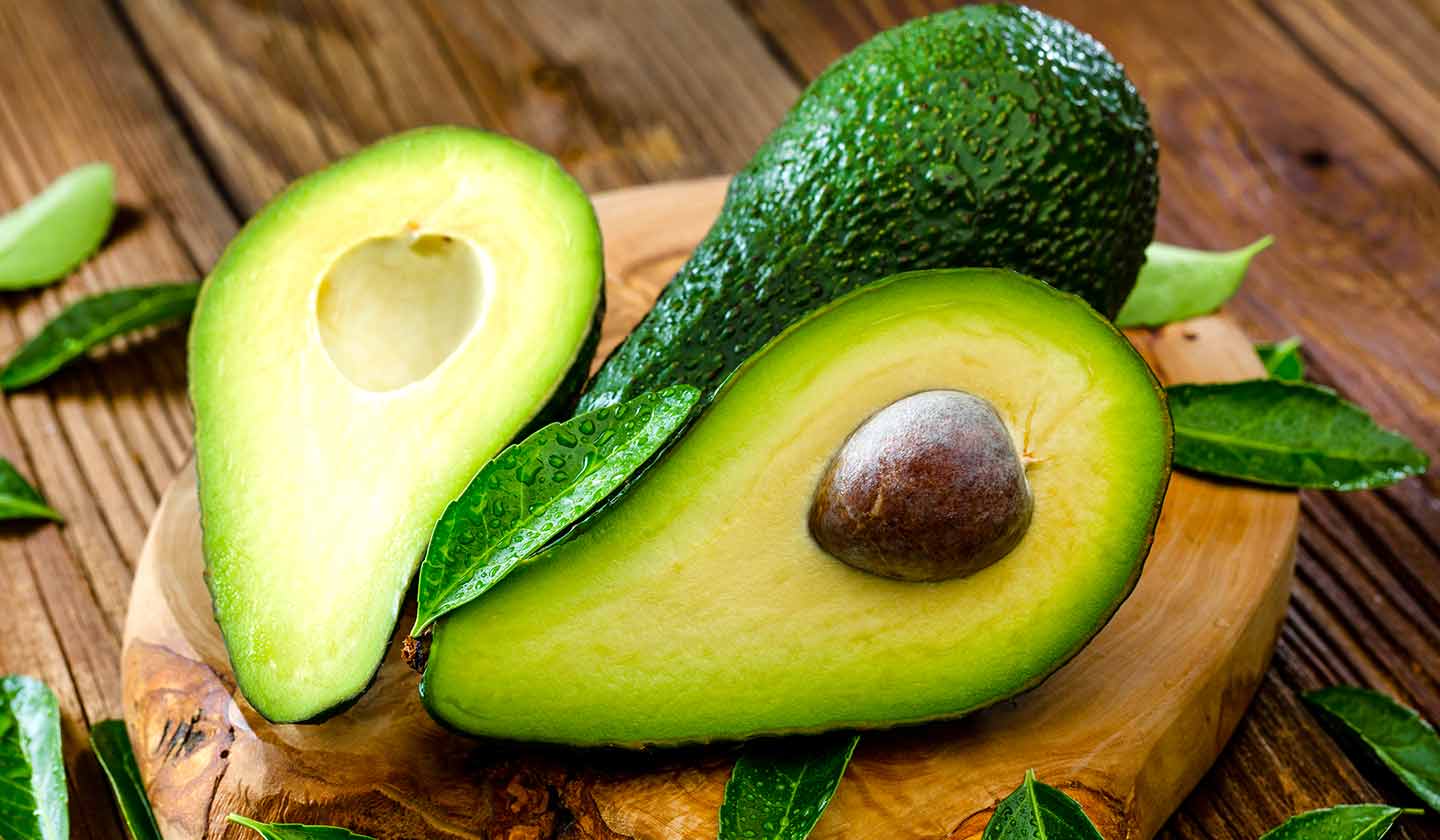
Avocado
Avocados help to reduce blood pressure. This is due to the presence of potassium in the food. Thanks to vitamin E, avocados act as a natural anti-inflammatory.
Avocados are very nutritious and contain a wide variety of nutrients, including 20 different vitamins and minerals.
Here are some of their key nutrients in a single 100-gram serving:
- Vitamin K: 26% of RDA
- Folic Acid: 20% of RDA
- Vitamin C: 17% of RDA
- Potassium: 14% of RDA
- Vitamin B5: 14% of RDA
- Vitamin B6: 13% of RDA
- Vitamin E: 10% of RDA
Avocados contain no cholesterol or sodium and are low in saturated fat. In addition, they are very high in potassium. A 100-gram cup of avocados has 14% of the recommended daily intake (RDA) of potassium. For comparison, bananas, which are a typical high-potassium food, have 10%.
Recent studies show that having a high potassium intake is linked to lower blood pressure, which is a major risk factor for heart attacks, strokes, and kidney failure.
Avocados and avocado oil are rich in monounsaturated oleic acid, a healthy fatty acid for our health. In addition, avocados are high in fiber - about 7% of their weight - very high compared to most other foods. Fiber has important benefits for weight loss and metabolic health.
According to the World Health Organization1), heart disease is the most common cause of death in the world. They are directly associated with factors such as cholesterol, triglycerides, inflammation, blood pressure, and others.
Recent studies suggest that avocados can:
- Significantly reduce total cholesterol levels.
- Reduce blood triglycerides by up to 20%.
- Reduce LDL cholesterol by up to 22%.
- Increase HDL cholesterol by up to 11%.
With this trio your break from fasting will be a success!
Good fasting to all, and lots of health!
Recipes
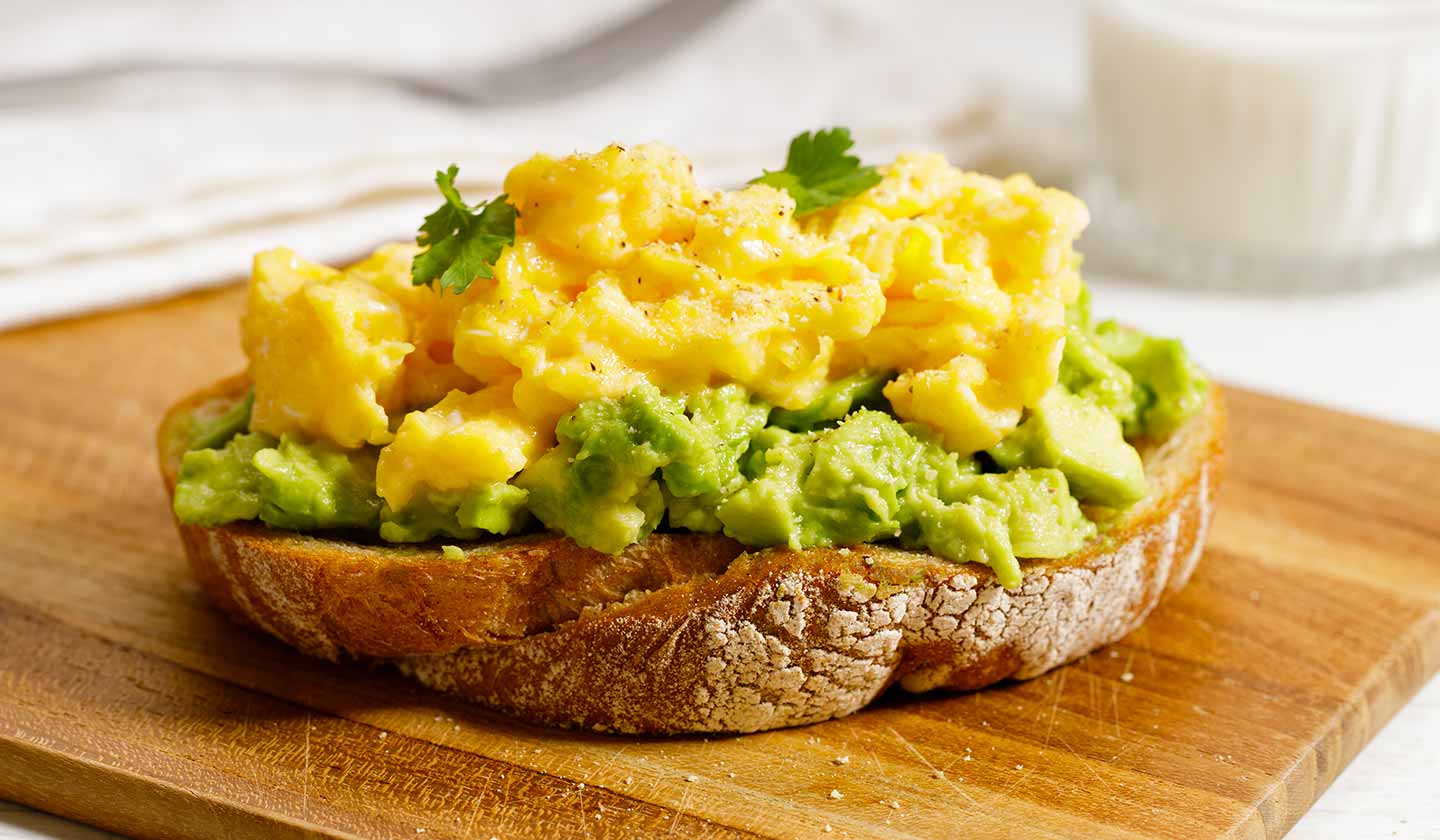
Bread with avocado and scrambled egg
Ingredients:
- ½ avocado
- 1 dash of olive oil
- ½ lemon
- 1 pinch of salt
- 1 slice of whole wheat bread
- 1 egg
Preparation:
- Blend half an avocado, 1 tablespoon of olive oil, the juice of half a lemon, and a pinch of salt until smooth. Set aside. As an alternative to this paste, if you prefer, prepare an avocado pesto with nuts or chestnuts, or even an avocado hummus with chickpeas.
- Put some olive oil in a frying pan, bring to medium heat and add the bread. Let it brown on both sides and set aside.
- Add another drizzle of olive oil in the same skillet, add the lightly beaten egg and season with a pinch of salt.
- Stir with a spatula and set aside. This is the scrambled egg that we will serve on our avocado toast.
- Place the toast on a plate, top with the avocado cream and the scrambled egg, and it's ready! Serve it for breakfast or as a snack with, for example, a tea or fruit juice, and bon appetite.
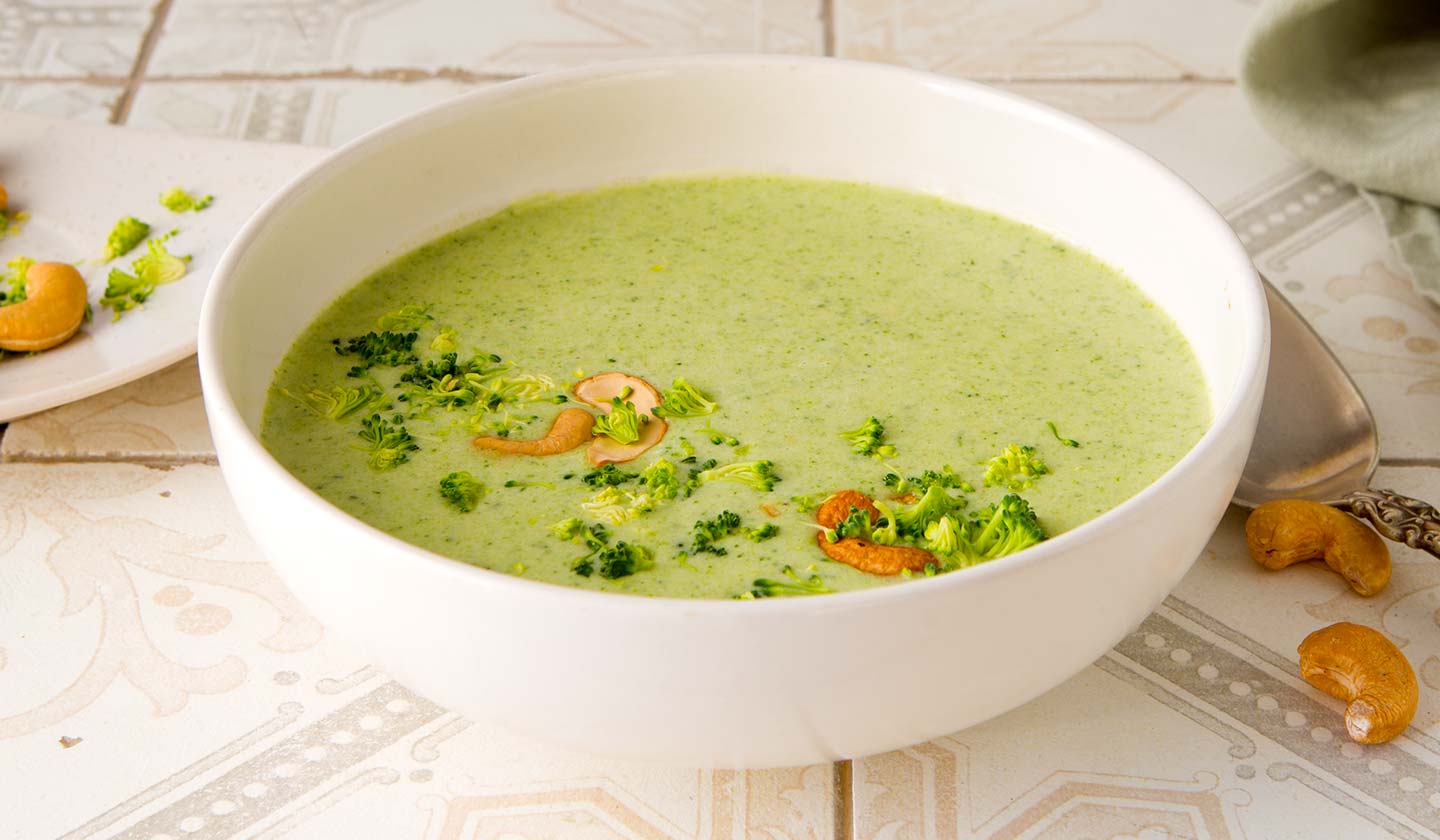
Broccoli and Avocado Cream with Caramelized Cashew
Ingredients:
- 1 small broccoli (about 600 g, can be frozen)
- 2 medium-sized potatoes (about 240 g)
- 1 large onion (about 200 g)
- 4 tablespoons of olive oil (60 ml)
- 1 l vegetable stock (chicken stock or water at room temperature)
- 2 small avocados (about 240 g)
- Salt
- Pepper
- 50 g cashew nuts
- 1 spoonful of sugar (15 g)
Preparation:
- Peel and dice the potatoes. Peel the onion and chop it by hand.
- Place the potatoes and onion in a pot with a little water, add some salt and 60 ml of olive oil. Let it boil for 15 minutes.
- Meanwhile, if using fresh broccoli, separate the sprigs and stem into thin slices about 5 mm thick (so they cook at the same time).
- Add the vegetable stock to the cooked potatoes and onions. Bring to the boil.
- Meanwhile, put the 15g of sugar in a pan over low heat. When it starts to melt, add the cashew nuts and stir continuously for a few minutes (until they are just a little caramelized in some parts).
- Add the pulp of the two avocados to our broth and mash.
- Taste the cream. Check if it lacks salt or pepper and add them if necessary. Serve with cream and the coarsely chopped caramelized cashew nuts and... enjoy!
Sources
www.who.int
Também lhe poderá interessar
Food
The multiple benefits of olive oil
Food






